
Organic vs. Natural
Key Takeaways:
- Organic and Natural Are Not the Same: Natural refers to where an ingredient comes from, while organic refers to how it's grown and processed. Only certified organic products meet strict purity standards.
- Processing Affects Potency: Cold-pressed organic oils retain more nutrients and antioxidants than heat-processed or synthetic alternatives. This impacts the effectiveness of moisturizers and toners.
- Labels Can Be Misleading: Many products use terms like “natural” or “green” without regulation. Look for organic certifications and transparent ingredient sourcing for real trust.
Walking through the world of skincare today feels like stepping into a garden of promises. So many products claim to be “clean,” “natural,” or “organic” — but how do you know what’s actually safe and effective for your skin? When two labels say they’re good for you, but only one truly is, it’s easy to feel misled.
At Sacred Rituel, we’ve built our skincare on more than just words — our roots run deep in plant medicine, purity, and performance. Every organic face moisturizer, organic skin care ritual, and organic face toner we create is a result of decades of herbal wisdom and intentional sourcing. We don’t dilute, compromise, or cut corners. Our commitment to 100% organic, cold-pressed, nutrient-dense ingredients means your skin receives exactly what nature intended: healing, nourishment, and lasting radiance.
In this piece, we’ll gently guide you through the difference between organic vs. natural in skincare — what these terms really mean, why they matter, and how to make the most aligned choice for your skin and your values.

What Does “Natural” Really Mean In Skincare?
“Natural” sounds reassuring — like something fresh from the earth, untouched and pure. But the term isn’t as tightly defined as you might think in the skincare world. There’s no regulated standard for what qualifies as “natural” in the beauty industry. This means a product labeled “natural” could still contain synthetics, preservatives, or processed ingredients that strip away much of their original benefit.
Many brands use the word to imply gentleness or simplicity, but unless the product is transparent about how its ingredients are sourced and processed, “natural” can become more of a marketing word than a meaningful promise. For example, a “natural” oil might come from a plant, but if it’s been heat-extracted or mixed with fillers, it loses much of its nutrient power by the time it touches your skin.
This is why it's essential to look beyond the label. Just because something is “natural” doesn’t always mean it’s the cleanest or safest option for your skincare ritual.
What Does “Organic” Mean In Skincare?
When we say “organic,” we’re not just referring to a trend — we’re talking about a regulated promise. In skincare, certified organic ingredients must be grown without synthetic pesticides, herbicides, or genetically modified organisms. They must also be processed to preserve their natural nutrients, antioxidants, and healing properties. This sets organic skin care apart — it’s not only about where an ingredient comes from, but how it’s treated from seed to serum.
Unlike the vague nature of “natural,” organic carries weight. It’s often certified by organizations like the USDA or COSMOS, which have strict guidelines. For example, an organic face moisturizer made with cold-pressed oils like rosehip, jojoba, or pomegranate will retain far more skin-benefiting nutrients than a conventional version.
At Sacred Rituel, our oils are 100% organic and cold-pressed, medicinal-grade, and selected for their vibrational and therapeutic potency. Whether our organic face toner or anti-aging organic moisturizer, every formula is created with integrity from start to finish.
Natural vs. Organic: The Key Differences
At first glance, “natural” and “organic” might seem like close cousins in the clean beauty world — but they’re more like distant relatives. The main difference lies in regulation, transparency, and processing.
- Natural ingredients may be derived from plants, minerals, or animals, but aren’t always pure. They can be chemically processed or combined with synthetic preservatives, and no universal definition or certification is required to use the term.
- Organic, on the other hand, is a legal standard. As outlined in the Guide to Understanding Organic Labeling Standards, certified organic ingredients must be grown and handled without harmful chemicals, and processed using methods that retain their natural benefits, like cold-pressing. When used in organic skin care, these ingredients support not just your skin, but the planet too.
Choosing between the two often comes down to what your skin needs and what your values align with. If your goal is to reduce exposure to toxins, support sustainable farming, and feed your skin real nutrients, organic moisturizer and organic face toner options are the gold standard.

Why It Matters: Purity, Safety, And Sourcing
When choosing between organic vs. natural skincare, it’s more than just a label — it’s about what your skin absorbs and how the earth is treated in the process. Clean beauty isn’t just about avoiding the bad; it’s about choosing the best nature can offer, without compromise. Here’s why this difference in sourcing and purity truly matters:
Purity Affects Performance
The more pure the ingredient, the more potent the benefits. A cold-pressed, organic oil retains its antioxidants, vitamins, and essential fatty acids — all of which support skin repair, elasticity, and hydration. In contrast, heavily processed “natural” ingredients can lose their nutrient value before they even touch your skin.
Safety Is A Long-Term Investment
Toxins in skincare don’t always show up as instant reactions — they can build up slowly, affecting hormonal balance, skin sensitivity, or long-term health. Organic skin care avoids synthetic preservatives, parabens, and fragrances that are common in unregulated “natural” formulas. This is especially important for products like organic face toner and organic face moisturizer, which are used daily and left on the skin.
Sourcing Impacts The Planet And Your Skin
Organic farming avoids the use of harmful pesticides, GMOs, and chemical fertilizers — protecting soil health, water systems, and biodiversity. Choosing organic means supporting farmers who are committed to sustainability and transparency. It also ensures that your skin is nourished by ingredients that are not only clean but cultivated with care.
What To Look For On Labels
Labels can be confusing — especially when “natural,” “clean,” and “green” are used freely without much regulation. But if you know what to look for, you can confidently choose products that align with your skin’s needs and values. Here are a few simple things to check when shopping for truly clean skincare:
Look For Certified Organic Seals
A certified organic seal means the product has met strict standards for farming and production. Look for badges like USDA Organic — this indicates that the product contains a high percentage of organic ingredients and avoids harmful chemicals. When you see these on your organic face moisturizer or organic face toner, it’s a sign of both safety and quality.
Read The Ingredient List Carefully
Ingredients are listed from highest to lowest concentration, so if water or a synthetic filler is listed first, the formula may not be as pure as it claims. Look for recognizable plant-based names — like rosehip oil, jojoba, or calendula — especially when marked as “organic” or “cold-pressed.” Avoid vague terms like “fragrance” or “perfume,” which can hide a mix of synthetic compounds.
Check For Transparency, Not Just Buzzwords
Some brands use “natural” or “clean” as a marketing hook without explaining what those terms actually mean in their products. A trustworthy brand will share details about how ingredients are sourced, processed, and preserved — not just pretty packaging or green-sounding names. True organic skin care is about honesty, not hype.
Pay Attention To Processing Methods
How an ingredient is extracted or processed directly affects its potency and purity. Cold-pressed oils, for example, retain more nutrients compared to those extracted with heat or solvents. So when you're choosing an organic moisturizer or organic face toner, look for terms like “raw,” “cold-pressed,” or “unrefined” for the highest quality.
Watch For The Word “Fragrance”
“Fragrance” might sound harmless, but it’s often a placeholder for dozens of undisclosed synthetic chemicals. These irritate sensitive skin and are usually prohibited in certified organic skin care. Instead, look for products that use essential oils or botanical extracts to scent naturally — and always avoid products that simply list “fragrance” with no explanation.

Final Thoughts
Choosing between organic and natural skincare ultimately comes down to what you value most — not just in your beauty routine, but in your relationship with the earth and your own well-being. It’s a personal, intentional act of care that reaches far beyond surface-level results. True nourishment comes from products that are as pure in purpose as they are in formulation, honoring the wisdom of nature without compromise.
At its core, this is about trust — in your products, in their sourcing, and in the rituals you invite into your life. When you choose organic, you're aligning with a deeper standard of integrity, transparency, and vitality. And in a world full of noise and marketing buzzwords, that kind of clarity is the most radiant choice you can make.
Read also:
- Best Vegan Skincare Brands For Conscious Consumers
- The Ultimate Guide To Vegan Skincare Certifications
- How To Read Labels: Identifying Truly Natural Skincare
Frequently Asked Questions About Organic vs. Natural
Can a product be both natural and organic?
Yes, a product can be both, but only if the natural ingredients are certified organic. Organic refers to how ingredients are grown and processed, while natural refers to the ingredient source. So, a natural product isn't automatically organic — it depends on certification and sourcing.
Why do some natural products still cause skin irritation?
Natural ingredients can still trigger allergic reactions or sensitivities, especially if they’re heavily processed or poorly preserved. Some essential oils and plant extracts, though natural, are highly active. That’s why formulation quality and skin compatibility matter just as much as the label.
Are organic skincare products more expensive for a reason?
Yes — certified organic ingredients require more ethical farming practices, careful processing, and compliance with strict standards. These steps ensure nutrient-rich, non-toxic formulations. So while prices are often higher, the product quality and sourcing integrity justify the cost.
Is “green” skincare the same as organic skincare?
No — “green” is a marketing term with no regulated meaning. It may imply eco-friendly values, but that doesn’t guarantee the ingredients are organic or safe. Always check for certifications and full transparency in the ingredient list.
Does using organic face toner really make a difference?
Yes — organic toners made with organic infusions can soothe, hydrate, and balance the skin without the drying alcohols found in many conventional toners. Their benefits come from the quality and integrity of each botanical ingredient. You’re giving your skin nutrition, not just moisture.
Can organic products go bad faster than natural ones?
Often yes, because they avoid synthetic preservatives. However, high-quality organic brands use natural preservation methods like vitamin E or essential oils. Proper storage and packaging also extend shelf life without compromising purity.
Is fragrance-free the same as unscented?
Not quite. Fragrance-free means no added scent chemicals, while unscented may still include masking agents to neutralize odor. If you're using organic skin care, look for products scented only with pure essential oils or left completely natural.
What makes Sacred Rituel’s organic skincare different?
We formulate using only 100% organic, cold-pressed, medicinal-grade botanicals — no fillers, no compromises. Our products like the organic face toner and organic moisturizer are designed with healing in mind, guided by decades of herbal knowledge. It’s skincare made with intention, not marketing.
How do I know if a product is truly organic?
Check for third-party certifications like USDA Organic. These seals confirm that a product meets strict standards for organic sourcing and production. If you don’t see a certification, dig deeper into the brand’s transparency and ingredient list.
Is natural skincare better for the environment than conventional skincare?
Not always — unless it’s paired with sustainable sourcing and eco-conscious packaging. Many “natural” brands still use ingredients that are mass-produced with little regard for soil or biodiversity. Certified organic skin care often supports regenerative farming and lower-impact methods.
Sources:
- Guo, X., Huang, H., Jiang, X., Chang, C., Gao, P., Zhong, W., Hu, C., He, D., & Yin, J. (2025). Comparative analysis of cold-pressed and hot-pressed coconut oil extraction: Implications for quality and antioxidant capacity. LWT, 221, 117614. https://doi.org/10.1016/j.lwt.2025.117614
- NCCIH. (2024). Natural Doesn’t Necessarily Mean Safer, or Better. NCCIH. https://www.nccih.nih.gov/health/know-science/natural-doesnt-mean-better
- Martins, A. M., & Marto, J. M. (2023). A sustainable life cycle for cosmetics: From design and development to post-use phase. Sustainable Chemistry and Pharmacy, 35(35), 101178. sciencedirect. https://doi.org/10.1016/j.scp.2023.101178

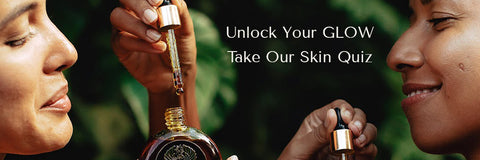
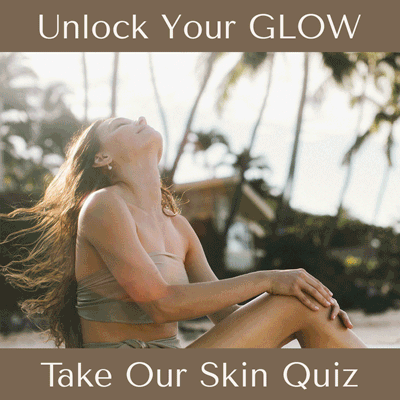
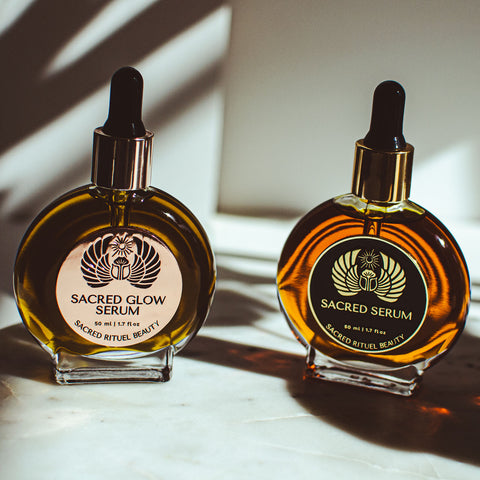
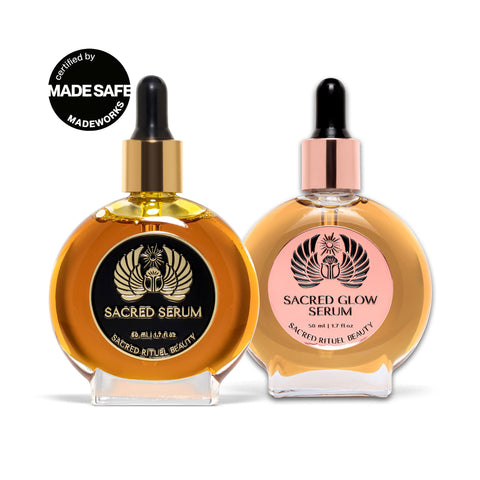
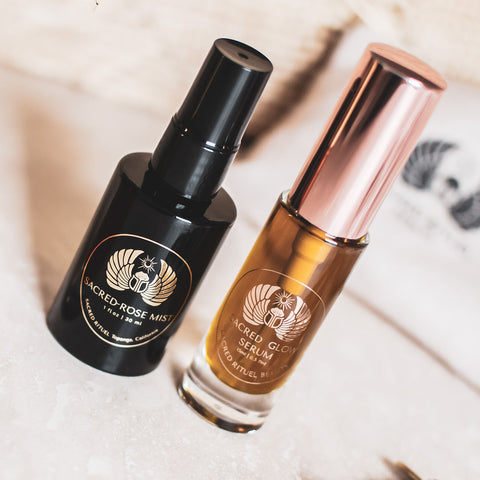
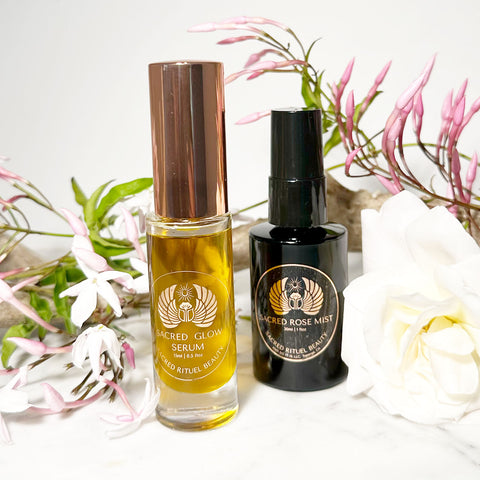
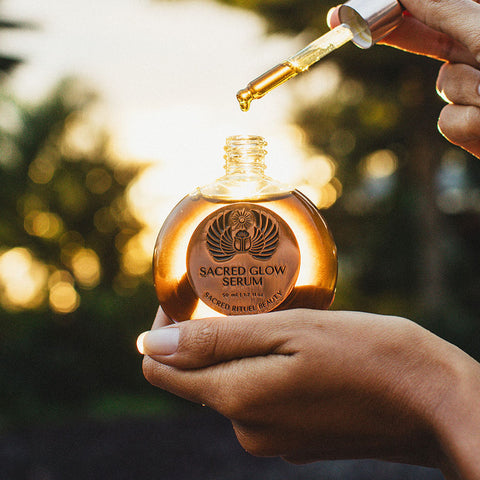
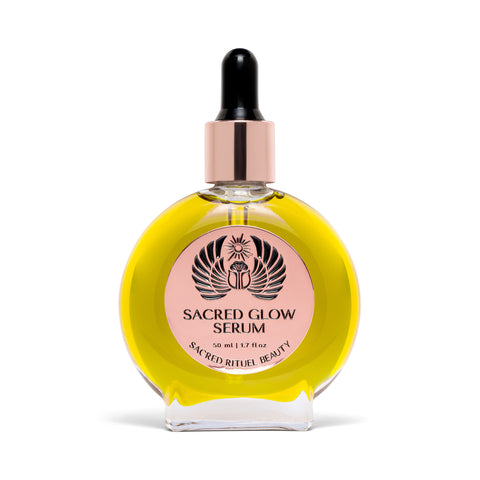

Comments (0)
There are no comments for this article. Be the first one to leave a message!